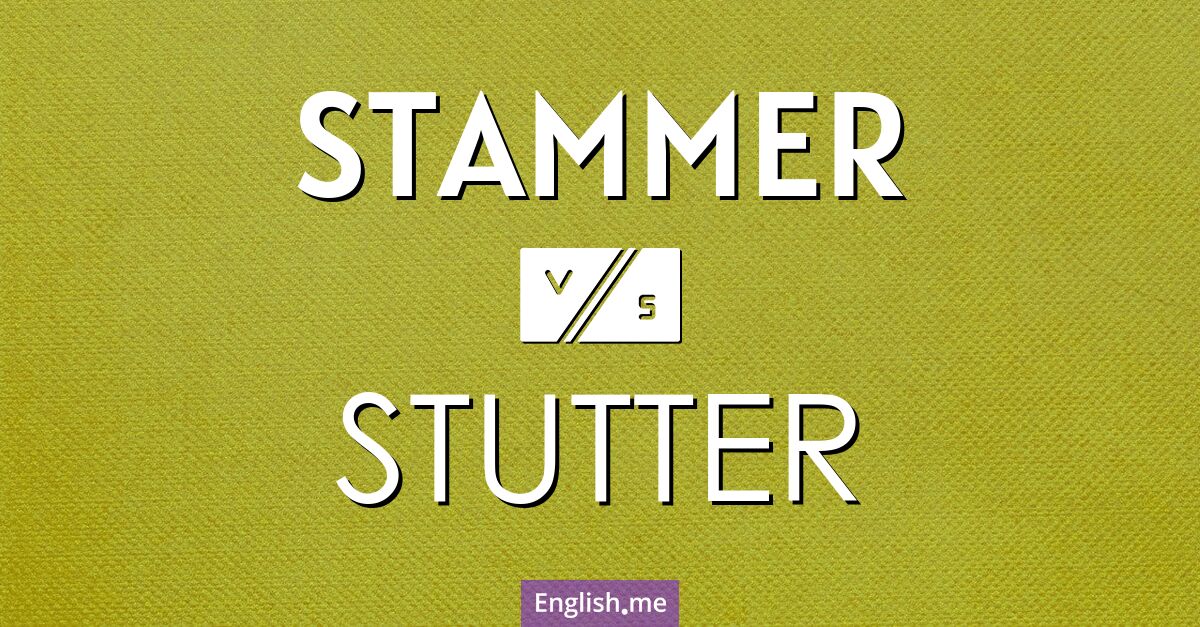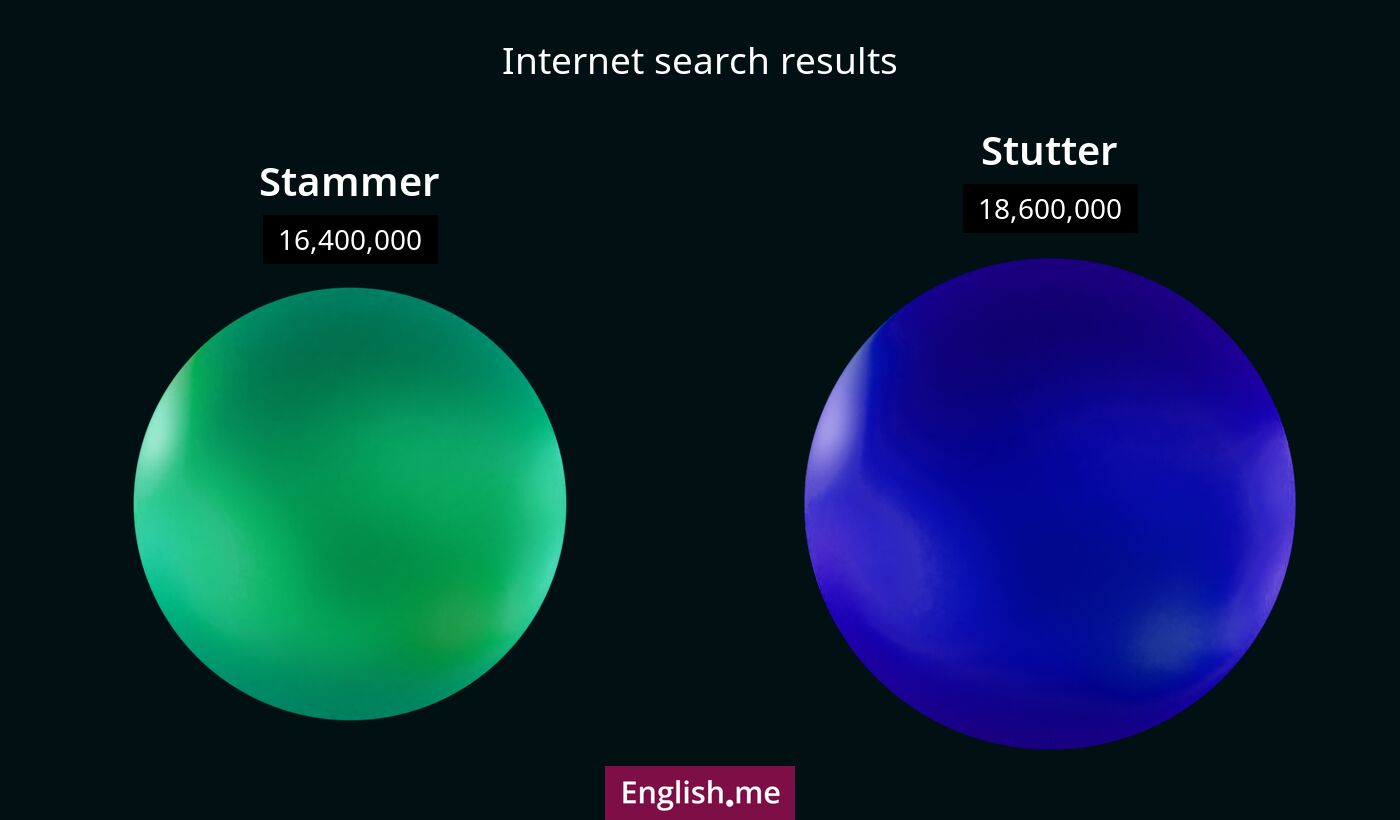"Stammer" vs. "stutter": exploring speech hurdles
Reviewed and edited by  Lloyd Cooper 12/11/2024, 18:18
Lloyd Cooper 12/11/2024, 18:18
English.me team member

 What is similar?
What is similar?
Both "stammer" and "stutter" refer to a speech disorder characterized by involuntary repetitions and disruptions in the smooth flow of speech. They are often used interchangeably and can describe the same type of speech impediment.
 What is different?
What is different?
While "stammer" and "stutter" are synonyms and used interchangeably, "stammer" is more commonly used in British English, whereas "stutter" is more frequently used in American English. Additionally, some people may perceive "stammer" as referring to a slightly milder or less frequent disruption in speech compared to "stutter".
 Which one is more common?
Which one is more common?

 Examples of usage
Examples of usage
Stammer- He was nervous and began to stammer as he introduced himself.
- Her stammer made public speaking a challenge throughout her school years.
- Despite his stammer, he delivered a confident and moving speech.
- The child would often stutter when he was excited or upset.
- She has been attending speech therapy to help with her stutter.
- People admired his perseverance and courage in dealing with his stutter.

 English
English español
español française
française italiano
italiano deutsche
deutsche 日本語
日本語 polski
polski česky
česky svenska
svenska Türkçe
Türkçe Nederlands
Nederlands